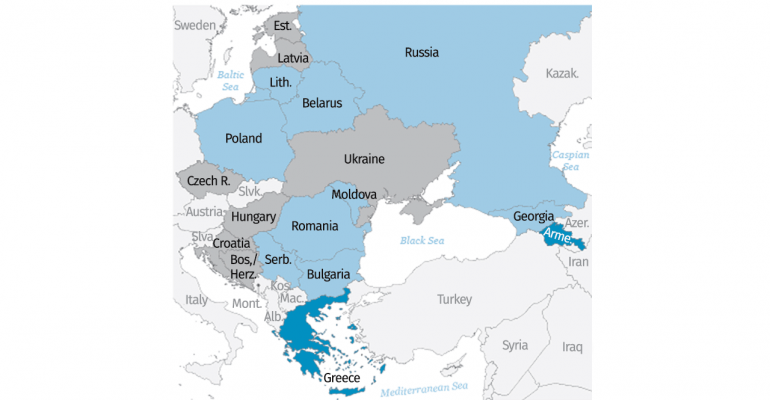Many Central and Eastern Europeans see link between religion and national identity
November 10, 2017 2023-07-11 9:41Many Central and Eastern Europeans see link between religion and national identity

Many Central and Eastern Europeans see link between religion and national identity
Atheist regimes dominated much of Central and Eastern Europe until the fall of the Iron Curtain and collapse of the Soviet Union between 1989 and 1991. Today, however, many of the governments in the region have an official state religion or an unofficial preferred faith. In such countries, people are more likely to see religion and national identity as entwined, compared with citizens of neighboring Central and Eastern European states that lack official or favored faiths, according to a new Pew Research Center analysis. Residents of states with official or favored religions also are more likely to support government subsidies and a public policy role for their country’s predominant church.
Of the 18 countries the Center recently surveyed in the region, two (Armenia and Greece) have an official state religion. Nine others, including Russia and Poland, unofficially “prefer” a religion, bestowing disproportionate benefits on a particular religious group, although they do not officially recognize it.
Across these countries, a median of 66% say being a member of the official or favored faith is very or somewhat important to national identity (e.g. “being truly Armenian”). In most countries without an official or preferred religion, substantially smaller shares (median of 43%) say this about the dominant religious group in their country.
In Greece, for instance, where Greek Orthodoxy is the country’s official religion, 76% of adults say being Orthodox is important to being Greek. In Poland, where the Roman Catholic Church is preferred by the government, 64% say being Catholic is important to being truly Polish.
By comparison, in countries where there is no officially recognized or preferred religion, generally smaller shares tend to agree that religion and national belonging go hand in hand, including in Ukraine (51%), Hungary (43%) and Latvia (11%).
There are, however, some outliers to this general trend. For instance, in the former Yugoslav republic of Bosnia, a religiously diverse country without an official or preferred religion, 59% say belonging to the faith group with which they personally identify (be it Muslim, Catholic or Orthodox) is important to being truly Bosnian. And, in neighboring Croatia, which also does not have a favored church, 58% say being Catholic is important to being Croatian.
Source: Pew Research Center








